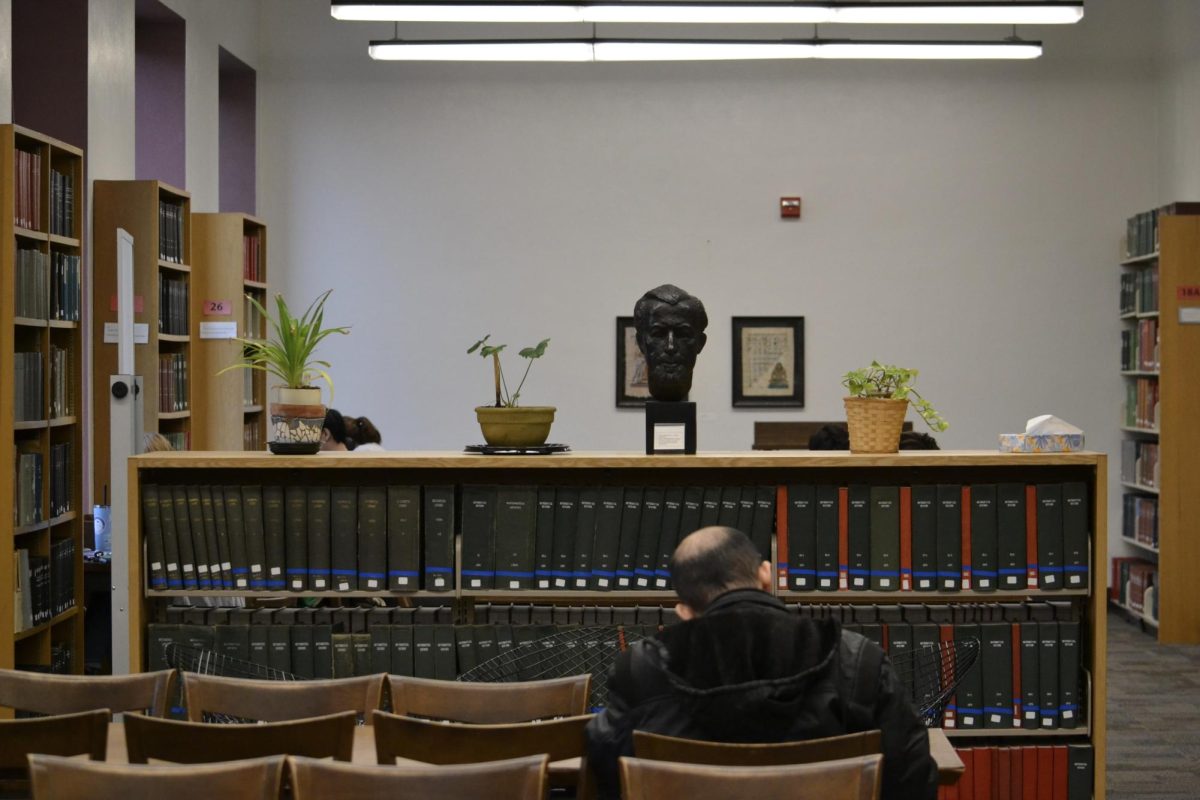As a child, author Tom Reiss liked to imagine himself in World War II Europe, duping Nazi soldiers in an effort to rescue Jews, including those family members persecuted during the Third Reich.
Reiss’ fascination didn’t end when he became an adult. As a journalist, he became engrossed with the story of a Jew who outwitted Nazis (and everyone else) by taking on several identities. This would become the focus of his new book, “The Orientalist.”
The subject of Reiss’ book, Lev Nussimbaum, was the author of his own mercurial identity – he alternately posed as a Muslim prince or donned the trappings of a tribal warrior from the Caucasus. He went by the names of Essad Bey and Kurban Said. In his various guises, he managed to cross continents, hobnob with Sigmund Freud, Benito Mussolini and Ezra Pound, and write several books.
More than 50 years later, Reiss would obsessively retrace every step of Nussimbaum’s life in an attempt to learn the man’s true genealogy, the realities of each of his aliases and who Nussimbaum was underneath it all. The investigation lasted seven years and encompassed thousands of pages of documents, meticulously color-coded in binders by Reiss.
“From the moment I first discovered Lev, it seemed like I had found a character I had been waiting my whole life to meet,” Reiss said in an interview with The Minnesota Daily.
In many instances, it also seemed as if key players in Nussimbaum’s life had been waiting their whole lives to speak with Reiss. Often, he said, he arrived “just in time” to meet a person who was on his or her deathbed or would die within the year.
“Traveling around the world, it was as though there were ancient people who had been waiting for decades for me to find them so they could pull out a ragged photo album, a box of love letters not opened since 1952 or a cluster of deathbed notebooks (like those) handed to me in Vienna,” he said.
“The Orientalist” received rave reviews from The New York Times, Entertainment Weekly and The Wall Street Journal, which praised Reiss’ storytelling ability, scholarship and historical detective work.
While “The Orientalist” is outstanding in each of these respects, ironically, its relevance to today’s world might also contribute to its best-seller status, Reiss observed.
“In some ways, the world he grew up in resembles the one we’re facing now; the global order that had held for many years was crumbling,” he said.
In addition, terrorism is rampant in the book and in Nussimbaum’s world. In Baku, Azerbaijan, the city where he was born, buildings were bombed and people kidnapped regularly. The local newspaper had a page devoted to updates on terrorist activities, including those missing or killed.
“Terrorism was in fact in his own house in a bizarre way,” Reiss said. Research revealed that Nussimbaum’s mother was sending money to Bolsheviks in Russia.
Furthermore, the book acts as a commentary on the malleable nature of identity, particularly racial, ethnic and religious identity. Then, like today, these identities were seen as rigid and essential. The ease with which Nussimbaum adopted them made a mockery of their supposedly inexorable nature.
Today’s falsehoods surrounding Islam are also confronted by the book and Nussimbaum’s life. Nussimbaum converted to Islam at age 18. For him, it was the third option among “bloody ideologies like communism and Nazism, and the consumer culture of America,” Reiss said.
In contrast to stereotyped ideas of Islam, Nussimbaum saw his religion as a “faith of ethnic diversity,” an “appeal for tolerance and a counterweight to violent extremism,” Reiss said.
After publishing a piece on his early Nussimbaum research in 1999 in The New Yorker, Reiss found he was not the only one left spellbound by the mystery. Dutch director Jos de Putter expressed early interest in the story of Nussimbaum, aka Kurban Said.
Initially, de Putter wished to collaborate with Reiss and follow him as he continued his research. But Reiss feared a camera crew might make interviewees nervous and change the nature of the responses.
De Putter persisted in creating the film, trying to find and interview all the people Reiss had encountered to that point in his investigations. Meanwhile, Reiss’ research continued for another five years.
De Putter’s result is the film “Alias Kurban Said,” which takes place when the mystery of Nussimbaum was indeed still just a mystery. The book and the film, Reiss said, are very different products.
He said he enjoyed the film overall, especially the visual documentation of characters from the book and locations.
“The old stock footage Jos found of Baku is really marvelous,” he said, “and the film is wonderfully atmospheric.”
“Alias Kurban Said” is debuting at the Minneapolis-St. Paul International Film Festival.
Reiss will be present to introduce the film at the Wednesday screening.
















